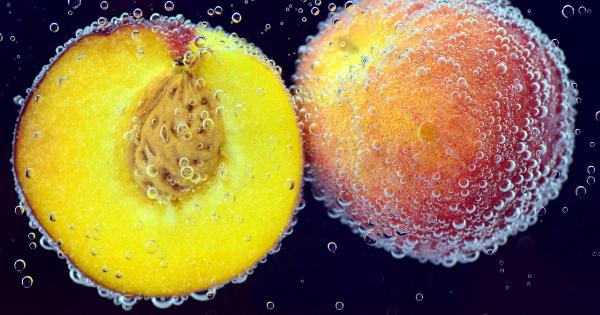When it comes to maintaining optimal health, few things are as crucial as the well-being of our digestive system. One common digestive issue that affects many individuals is the formation of bile stones.
These hardened deposits can cause discomfort and may even require medical intervention in severe cases. However, with the right dietary strategies, you can keep bile stones at bay and promote a healthy digestive system. In this article, we will explore some effective ways to prevent the formation of bile stones through dietary modifications.
Understanding Bile Stones
Bile stones, also known as gallstones, are solid deposits that form in the gallbladder or bile ducts. They are primarily composed of cholesterol or bilirubin, and their size can vary from tiny grains to larger, more obstructive stones.
Bile stones can lead to symptoms like abdominal pain, indigestion, and jaundice, and they may even cause complications if left untreated.
While genetics and certain medical conditions can increase the risk of developing bile stones, dietary factors play a significant role as well.
By adopting a healthy diet and following some specific guidelines, you can reduce the likelihood of bile stone formation and maintain a well-functioning gallbladder.
Incorporate High-Fiber Foods
Fiber is an essential nutrient for overall digestive health, and it can also help prevent bile stone formation.
Soluble fiber, in particular, binds to cholesterol in the digestive system and promotes its elimination, reducing the risk of cholesterol-based stone formation. Some excellent sources of soluble fiber include fruits like apples, pears, and berries, as well as vegetables like broccoli, Brussels sprouts, and carrots. Aim to include a variety of high-fiber foods in your daily diet.
Opt for Healthy Fats
Dietary fats have a direct impact on bile production and secretion.
While excessive consumption of unhealthy fats can lead to an overproduction of cholesterol and increase the risk of stone formation, incorporating healthy fats in moderation can have beneficial effects. Consider replacing saturated fats found in red meat and processed foods with healthier options like avocados, olive oil, and fatty fish such as salmon or mackerel.
These fats promote a balanced bile composition and reduce the likelihood of stone formation.
Stay Hydrated
Proper hydration is crucial for many aspects of health, including the prevention of bile stone formation. Ample fluid intake helps in diluting the bile, reducing the concentration of cholesterol and bilirubin.
Make sure to drink an adequate amount of water throughout the day, aiming for at least 8 glasses. Including hydrating beverages like herbal teas or infused water can also contribute to your daily fluid intake.
Limit Cholesterol-Rich Foods
Cholesterol-rich foods, such as egg yolks, organ meats, and full-fat dairy products, can contribute to an elevated cholesterol level in bile, thus increasing the risk of forming cholesterol stones.
While it is not necessary to completely eliminate these foods from your diet, it is essential to consume them in moderation and balance them with healthier alternatives. Opt for lean sources of protein like poultry, fish, and legumes, and choose low-fat or fat-free dairy products whenever possible.
Include Foods Rich in Magnesium
Magnesium is a vital mineral involved in numerous bodily processes, including cholesterol metabolism and bile production. Higher magnesium intake has been associated with a reduced risk of developing bile stones.
Incorporate foods rich in magnesium, such as spinach, almonds, black beans, and whole grains, into your meals. If necessary, magnesium supplements can also be considered under the guidance of a healthcare professional.
Consume Foods with Ursodeoxycholic Acid
Ursodeoxycholic acid is a naturally occurring bile acid that helps dissolve cholesterol stones and prevents their formation.
It works by reducing the amount of cholesterol secreted into bile and decreasing the saturation of cholesterol in the gallbladder. Some foods, such as apples, artichokes, and beetroot, contain this beneficial acid. Including these foods in your diet can promote gallbladder health and reduce the risk of bile stone formation.
Moderate Alcohol Consumption
Excessive alcohol consumption can negatively affect liver function and bile production, increasing the risk of developing bile stones. It is advisable to moderate your alcohol intake and limit it to recommended amounts.
For women, this means up to one alcoholic beverage per day, while men can have up to two per day. Remember that moderation is key, and excessive alcohol consumption can have detrimental effects on your overall health as well.
Avoid Rapid Weight Loss
Sudden, significant weight loss can disrupt the delicate balance of bile composition, making it more prone to stone formation.
If you need to lose weight, it is advisable to do so gradually and under the guidance of a healthcare professional or registered dietitian. Slow and steady weight loss allows your body to adjust and adapt, reducing the risk of developing bile stones along the way.
Regular Physical Activity
Besides aiding in weight management, regular physical activity has many benefits for overall health, including digestive health.
Engaging in moderate-intensity exercise for at least 150 minutes per week can help maintain healthy bile production and reduce the risk of bile stone formation. Find activities you enjoy, such as brisk walking, swimming, or cycling, and make them a part of your routine.
Conclusion
When it comes to preventing bile stone formation, dietary strategies play a significant role.
By incorporating high-fiber foods, opting for healthy fats, staying hydrated, and limiting cholesterol-rich foods, you can support gallbladder health and reduce the risk of developing bile stones. Including magnesium-rich foods, foods with ursodeoxycholic acid, and engaging in regular physical activity further contribute to a well-functioning digestive system.
Remember to consult with a healthcare professional before making any significant dietary changes, especially if you have a history of gallbladder issues. By taking proactive steps toward a healthier lifestyle, you can keep bile stones at bay and ensure optimal digestive health.































